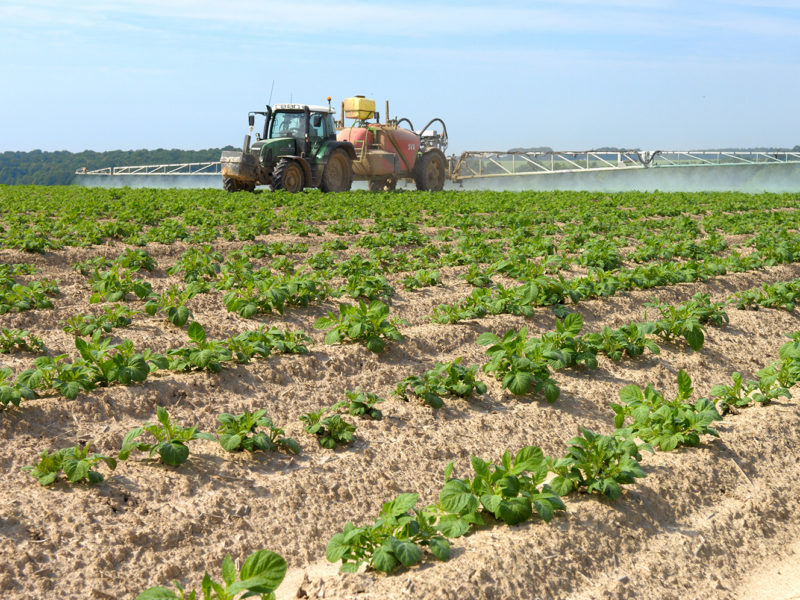BC potato growers are breathing a sigh of relief following a Health Canada decision last week allowing the continued use of clothianidin and thiamethoxam for seed treatments.
The two are neonicotinoids, which have come under fire for their negative effects on pollinators and other beneficial insects. The two have proven effective against key pests of potatoes and other crops but Health Canada launched a special review in response to concerns that they were frequently showing up in aquatic environments. The review attracted 47,000 comments, as well as a substantial amount of new information, including new studies and water monitoring data from various sources such as registrants, provinces, academia and other regulatory authorities.
The preliminary recommendation was for a ban on all outdoor uses of neonics, both foliar and seed treatments but the province’s pesticide specialist, Ken Sapsford, monitored three watersheds in the Lower Mainland to demonstrate that the chemical wasn’t contaminating watercourses in BC in order to provide a counterpoint to elevated levels reported in Ontario and Quebec.
“My job is to send this data to PMRA to show that the agriculture uses that we see on label are not causing the issue,” he told the BC Potato and Vegetable Growers Association in 2019.
Sapsford was optimistic that the data he provided from BC would make a difference. He was proven right in the Health Canada decision, which allowed for continued use of the two chemicals on seed potatoes so long as it wasn’t used as a soil drench. In-furrow use in potatoes is also banned.
Registrants, retailers and users have until March 31, 2023 to update labels and application practices to conform with the decision.


 BCTF warehouse listed
BCTF warehouse listed